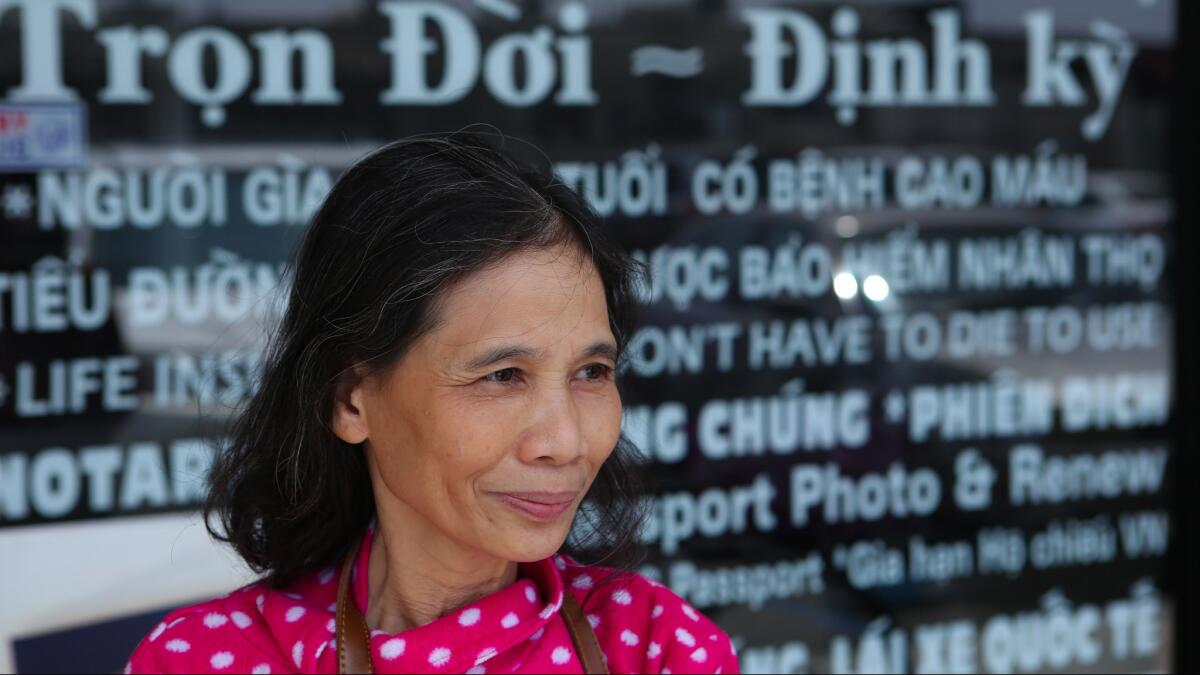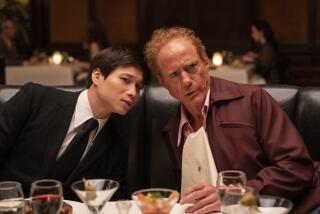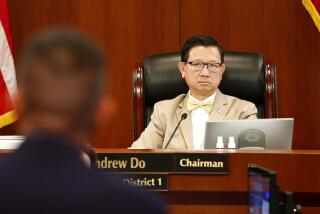Little Saigon is abuzz hours before Obama’s visit to Vietnam

The idea of an American president meeting with leaders of Vietnam’s Communist government once would have sparked outrage among the immigrant diaspora in Orange County’s Little Saigon.
Anti-communist feelings have always run strong in the district, where thousands resettled during the late 1970s. But time, and the normalizing of U.S. relations with Vietnam, has led them to being more open to such dialogue.
So when President Obama lands in Vietnam on Sunday, Vietnamese Americans have focused on a wish list of issues they want him to press. At the top: human rights reforms, more religious freedoms and greater protections for the environment in a country where officials believe pollution may be the cause of a recent mass die-off of fish that washed ashore.
See more of our top stories on Facebook >>
All these issues have a direct connection to many who still have relatives in their homeland.
“It’s more than giving citizens a voice,” said restaurant manager Adam Le, alluding to the nearly 100 political prisoners who are believed by human rights activists to be imprisoned without having a trial. “They need to be able to communicate openly -- on any platform” and not be arrested.
Santa Ana retirees Hau Ngo and his wife, Hong Vu, agreed. Running an errand at the Little Saigon post office, Ngo, 73, stopped to say that “when world leaders step foot in a poorer country, they should pay attention to the basics. Vietnamese citizens have a right to protest. A right to worship. When I go back to Vietnam, I go out on the streets and my family members warn me not to speak a word about politics. The police know when locals have foreign visitors. They trail your every move on every corner. How can anyone live like that?”
Obama will be the third U.S. president to enter Vietnam, following the footsteps of Bill Clinton and George W. Bush. But unlike previous trips, “this one will have a different symbolism,” said Quan Dinh, an economist specializing in international development who led a U.S. congressional delegation to Vietnam last month. “Those others focused on the legacies of the past. Mr. Obama will have his eyes on the future. The visit will strengthen the conviction that the U.S. is still committed to Asia.”
As the Hanoi government lays out the red carpet for the leader of its former enemy, the ruling party is looking for alliances to boost a troubled economy and to reduce security threats from neighboring China.
If Obama decides to lift the arms embargo, Vietnam could finally buy advanced weapons to “defend itself against an assertive China flouting international laws in the South China Sea” as it seeks deeper control over the region, including the hotly disputed Spratly and Paracel islands, Dinh said.
Vietnamese officials also are eager to discuss the U.S.-backed Trans-Pacific Partnership, a trade agreement among 12 Pacific Rim countries that would raise living standards while lowering trade barriers.
“We talk big problems, yes, but under all the seriousness are matters in our heart,” says homemaker Huong Pham, 65, loading Buddhist prayer books onto her bike before heading home blocks from Little Saigon.
“I always want to visit Vietnam. The money that Vietnamese overseas send back allows our families that remain some peace. But what about those without relatives outside the country? They have no one -- so when they see a big name coming -- they have hope.”
For Le, 40, travel between the United States and Vietnam is nothing new. He’s been back 10 times since leaving his homeland and moving to Orange County in 1994.
“It’s normal these days. People don’t live in isolation anymore. And people are not surprised that President Obama is coming to visit,” he says, sipping coffee in front of Pho Lovers, the eatery where he works in Westminster’s Little Saigon.
Twenty years ago, many overseas Vietnamese who regularly flew or did business inside Vietnam -- or drawn home by arranged marriages -- kept quiet, for fear their reputation could be harmed or their source of income might be boycotted. But increasingly, the global economy and assimilation of Vietnamese Americans changed that, immigrants say, allowing more expatriates to work and nurture relationships out of the shadows.
Vietnamese-language websites and social media brim with stories about moguls or music stars balancing dual lives between America, their adopted country, and the country of their birth.
It’s a “natural” progression because ultimately, Le said, “immigrants like to return” to where they’re from.
Twitter: @newsterrier
ALSO
Best Buy ‘Geek Squad’ worker helped FBI in child porn bust, attorney claims
Space shuttle fuel tank delights crowd as it begins its slow roll to Exposition Park
More to Read
Start your day right
Sign up for Essential California for news, features and recommendations from the L.A. Times and beyond in your inbox six days a week.
You may occasionally receive promotional content from the Los Angeles Times.







